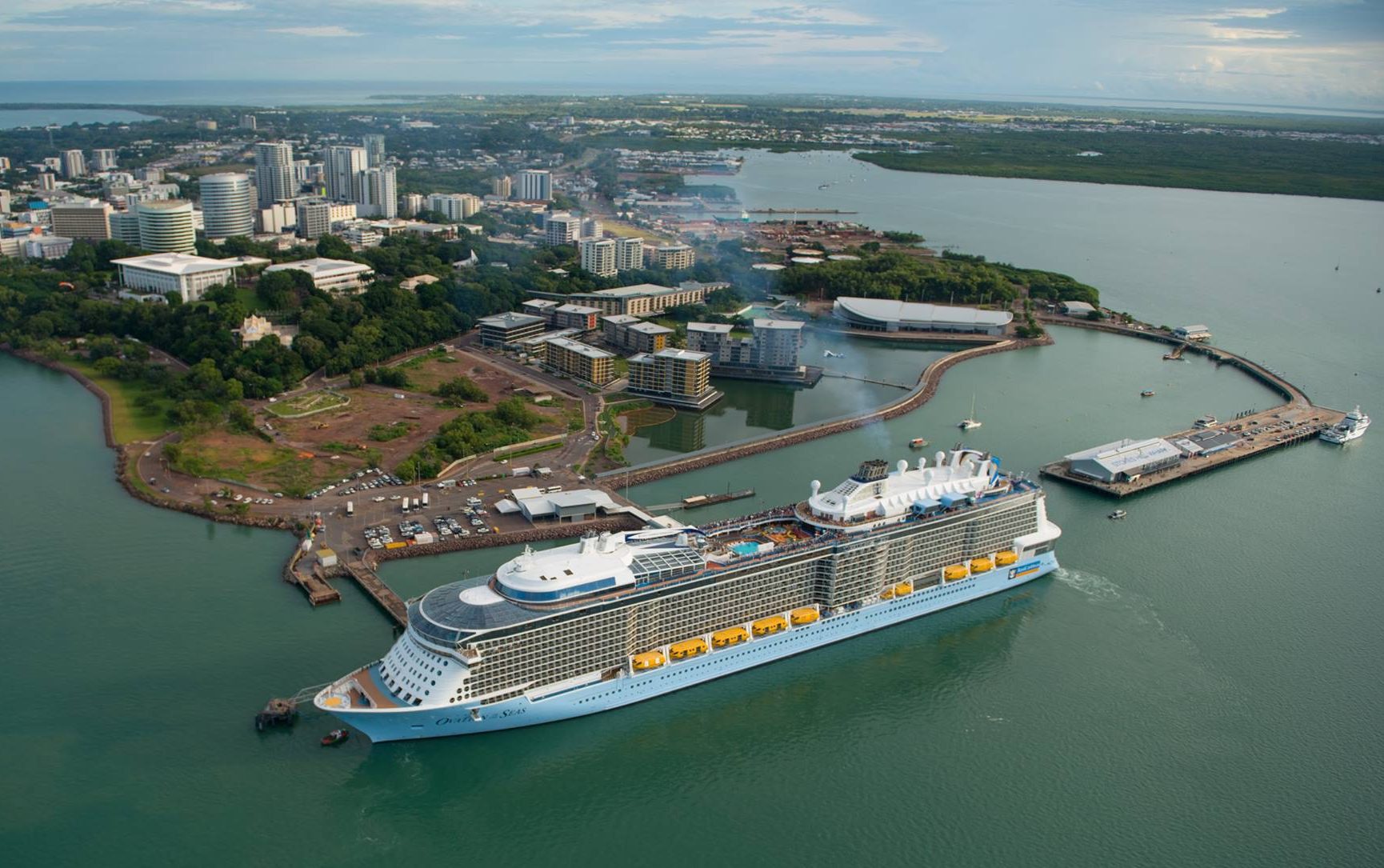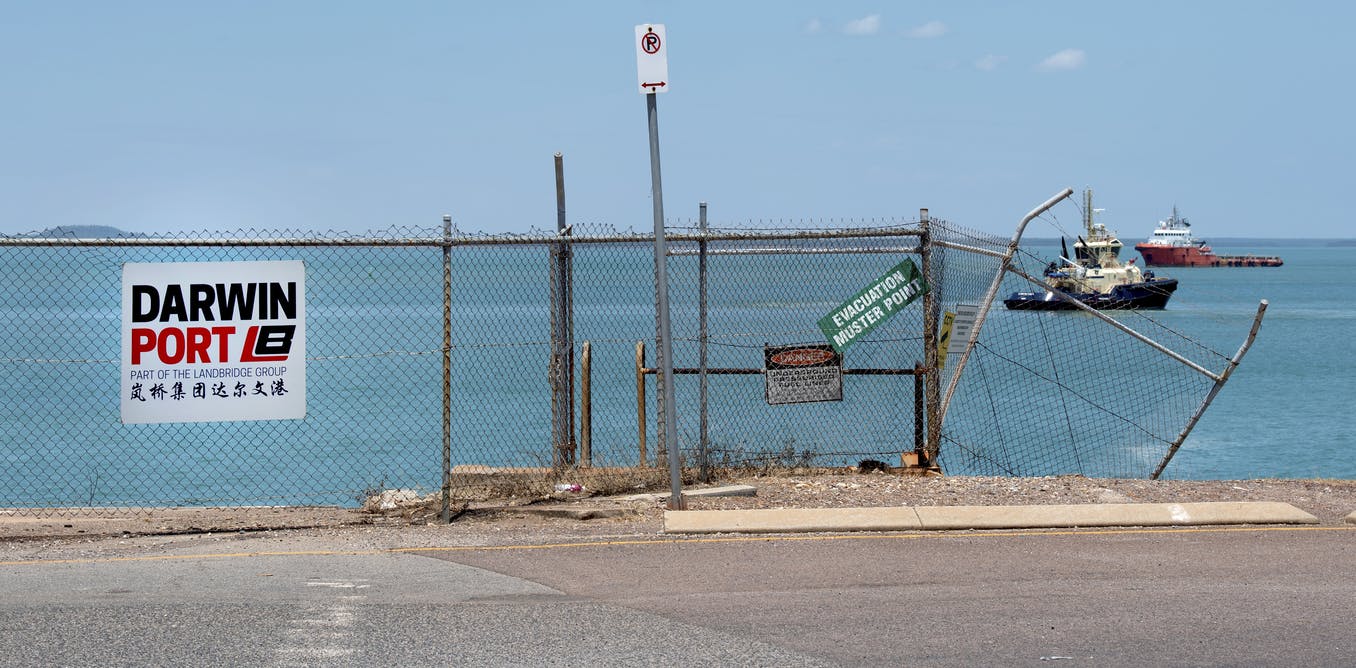
All Eyes on the Port of Darwin
As the Trade tensions between China and Australia deepen, the ownership of the Port of Darwin comes increasingly into focus and seems set to become a flashpoint in the deteriorating relationship between the two countries.
The future of the Port will almost certainly remain controversial no matter the outcome of the review recently ordered by incoming Defence Minister, Peter Dutton.
In October 2015, the Chinese-owned Landbridge Group won the bid for a lease of Port Darwin. The then Country Liberal-controlled Northern Territory Government granted the company a 99-year lease for A$506 million.
At the time, there were many who raised concerns that the sale presented serious concerns for Australia’s security. Those concerns have recently intensified.

Since the Japanese bombing raids of World War II, Darwin has always had a sense of being on Australia’s strategic frontline.
China’s rapid economic rise and military ambitions to Australia’s north have steadily increased the city’s strategic importance, as well as its relevance to this country’s main defence ally the United States.
Back in 2015, the move caught the Malcolm Turnbull-led federal government, and its then treasurer Scott Morrison, off guard, and drew a furious response from President Barack Obama as well as figures in his administration.
Then Defence secretary, Dennis Richardson, told a parliamentary committee in October 2015: “We can only look at this in terms of our interests. Does it raise national security concerns for us as a department? It does not. If other people have other issues about foreign ownership of whatever, that is not an issue that concerns us”.
My, how times have changed.
Last June the Australian Government introduced a new test for foreign investment which was explained by Treasurer, Josh Frydenberg.
“Through the introduction of a new national security test, stronger enforcement powers and enhanced compliance obligations, we will ensure that Australia can continue to benefit from foreign investment while safeguarding our national interest,”
“It is vital that the government have the ability to call in an investment before, during or after acquisition for review if it raises national security concerns.”
These new rules should be used re re-asses the Port of Darwin ownership according to Peter Jennings, the Executive Director of the Australian Strategic Policy Institute.
“The People’s Republic of China has launched on a path of regional domination, all Indo-Pacific countries must assess critical infrastructure vulnerabilities inherent in the presence of large Chinese businesses with their obligations to the CCP. This forces an uncomfortable break with past hopes for mutually beneficial business relations, but hard strategic reality must shape what happens from now.
“Today, Defence must look at Australia’s national security interests in the Port of Darwin, not just how many days patrol boats need to access a wharf. Darwin is emerging as a strategic location not just for Australia, but also for our allies and partners. Control of the port matters even more now than it did in 2015”.
It would seem that thinking like this underpins the review that has been summoned by Minister Dutton on behalf of the Morrison Government.
In early May, the Prime Minister was quizzed on a visit to Darwin.
“If there is advice from the Defence Department or our security agencies that change their view about the national security implications of any piece of critical infrastructure, we have legislation now which is dealing with critical infrastructure,” said Morrison.
That new legislation gives Canberra the power to cancel agreements between foreign powers and individual states and territories.
It used the new law to rip up Victoria’s memorandum of understanding with Beijing on the Belt and Road initiative – a move that enraged China.
Interestingly, Landbridge has previously talked about the Port of Darwin in terms of the part it might play in the future of the Belt and Road project.
Now the company’s Darwin Port deal is looking like it could suffer the same fate.
Such a move would be counterproductive according to the man in charge at the Port.
The Australian chief of the Port of Darwin’s Chinese owner is warning the potential scrapping of its 99-year lease threatens to deter foreign investment, denouncing the treatment dished out to the company as the worst he has seen a multinational endure.
Landbridge Group Australia managing director Mike Hughes lashed the sideline critics who “carp about the lease”, arguing at no point had security officials formally raised any concerns over the firm’s operation of the port.
“Having spent most of my career working for multinationals investing in different parts of the world, most of it for an American company in south-east Asia, I have not seen a company as badly treated as Landbridge Group in Australia,”
Mr Hughes wrote in The Australian Financial Review, “In almost six years, I have yet to hear a single concern about Landbridge operating the port that has merit.
Any move to scrap the lease is expected to prompt further retaliation from China which in response to the axing of the Victorian BRI deals has complained repeatedly to the Morrison government that it discriminates against Chinese investment.
In the end, the outcome of the review will end up on the desk of Defence Minister, Peter Dutton, a hawk, who seems out to make a name for himself in his new portfolio.
In the meantime China’s Landbridge Group will carry on with its investment in Australia’s Darwin Port but will consider legal advice to protect its commercial interests if further political threats to “tear up” the deal negatively affect its business.
In its first public comments since calls to axe the company’s 99-year lease of the port, Landbridge said at a recent press conference in Hong Kong that the port’s expansion had progressed in line with the contract struck in 2015, and that recent political comments made by Australian government officials had hurt its dealings with business partners.
Watch this space.


Leave a Reply